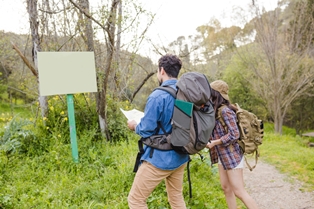As globetrotters yearn for new adventures, Jamaica beckons with its vibrant culture, stunning beaches, and lush landscapes. However, before you pack your bags and embark on your island getaway, it’s crucial to be well-informed about the travel advisories issued by the U.S. State Department. In this article, we’ll delve into the intricacies of the State Department’s Jamaica travel advisory, shedding light on its nuances, implications, and practical tips for a secure and enjoyable trip.
Understanding the State Department Travel Advisory System
The State Department’s travel advisories serve as a compass for travelers, offering guidance on destinations’ safety and security conditions. With a tiered system ranging from Level 1 (Exercise Normal Precautions) to Level 4 (Do Not Travel), these advisories help you gauge the potential risks associated with your chosen destination.
State Department’s Role
Purpose of Travel Advisories
The primary purpose of travel advisories issued by the State Department is to empower citizens with the necessary information to make informed decisions about their travel plans. These advisories serve as a tool to communicate potential risks and safety concerns associated with visiting specific countries or regions.
Providing Timely and Relevant Information
The State Department is committed to delivering timely and relevant information. This involves a comprehensive assessment of diverse factors, including but not limited to crime rates, health considerations, and political stability. By offering this information, the State Department enables travelers to weigh the risks and benefits, ensuring a safer and more informed travel experience.
Jamaica’s Travel Appeal
Jamaica, renowned for its reggae rhythms and warm hospitality, has long been a magnet for vacationers seeking both relaxation and adventure. From the cascading Dunn’s River Falls to the historical landmarks of Kingston, the country boasts a rich tapestry of experiences that captivate every kind of traveler.
Current Situation in Jamaica
In recent times, the island nation has grappled with sporadic incidents that have garnered international attention. While these incidents are not representative of the overall travel experience, they have prompted the U.S. State Department to issue an advisory, urging travelers to exercise caution.
State Department Jamaica Travel Advisory: What You Need to Know
As of the latest update, Jamaica is under a Level 2 advisory, which advises travelers to Exercise Increased Caution. This level suggests that while travel is generally safe, travelers should remain vigilant due to potential risks in specific areas.
Understanding the Advisory Levels
- Level 1 (Exercise Normal Precautions): This is the lowest advisory level, indicating a relatively low risk of safety concerns.
- Level 2 (Exercise Increased Caution): Travelers are advised to be more alert and cautious, especially in certain regions.
- Level 3 (Reconsider Travel): This level suggests a higher level of caution, often due to significant security concerns.
- Level 4 (Do Not Travel): The highest advisory level, indicating a severe security risk and urging travelers to avoid the destination.
Safety Tips for Travelers
When visiting Jamaica, it’s wise to adhere to a few safety guidelines. Firstly, keep your belongings secure and avoid displaying signs of affluence. Secondly, stay updated on local news and follow the advice of local authorities. Lastly, be cautious when exploring unfamiliar areas, especially after dark.
Local Perspectives and Insights
While travel advisories provide valuable insights, they may not always capture the full essence of a destination. Locals and frequent visitors often have nuanced perspectives that shed light on the true safety landscape. Engaging with local communities and seeking advice from seasoned travelers can provide a holistic view.
Mitigating Risks While Enjoying Your Trip
To strike a balance between safety and enjoyment, consider staying in well-established tourist areas known for their safety records. Opt for reputable accommodations and guided tours to minimize potential risks. Engaging in water sports, exploring cultural sites, and savoring local cuisine can all be part of a memorable and secure experience.
Staying Updated on Travel Advisories
Staying informed is paramount. Check official sources such as the U.S. State Department’s website for real-time updates on travel advisories. Registering with the Smart Traveler Enrollment Program (STEP) ensures that you receive the latest information and embassy notifications.
Future Prospects
Potential Changes in Advisories
Anticipating potential alterations in travel advisories is crucial for future planning. Factors such as improving safety conditions or emerging challenges might lead to adjustments in the State Department’s recommendations. Staying attuned to these changes allows both travelers and local authorities to adapt and enhance overall safety measures.
Long-Term Impact on Tourism
The long-term impact of travel advisories on Jamaica’s tourism industry is a key consideration. By assessing how these dynamics evolve, stakeholders can strategize and implement measures to sustain or enhance the country’s position as a desirable travel destination. Proactive initiatives to address concerns raised in advisories contribute to building a resilient and thriving tourism sector over time.
FAQs
Answering Your State Department Jamaica travel advisory Queries
As of the latest information, quarantine requirements in Jamaica can vary based on your travel history, vaccination status, and the current health situation. It’s important to check the most up-to-date guidelines from Jamaican authorities before you travel.
Travelers to Jamaica are typically required to complete an online Travel Authorization form before their departure. This form collects essential information for contact tracing and health screening purposes. Make sure to fill out the form accurately and well in advance of your trip.
Jamaica usually requires travelers to provide a negative COVID-19 test result obtained within a specific timeframe before arrival. The accepted tests typically include PCR (Polymerase Chain Reaction) tests and NAAT (Nucleic Acid Amplification Test) tests. Always verify the exact requirements before your trip.
Travel restrictions for Jamaica can change based on the global health situation. These might include entry requirements, quarantine measures, and testing mandates. Stay updated with the latest information from both your home country’s authorities and Jamaican officials.
Travel restrictions and entry requirements are subject to change, depending on various factors. Before planning your trip, confirm the current status of travel permissions and requirements for Jamaica. Keep in mind that conditions can evolve rapidly in response to health and safety concerns.
Conclusion
Embarking on a journey to Jamaica requires more than just packing sunscreen and flip-flops. By understanding the State Department travel advisory system, embracing local perspectives, and adopting prudent safety measures, you can make the most of your vacation while prioritizing your well-being.





